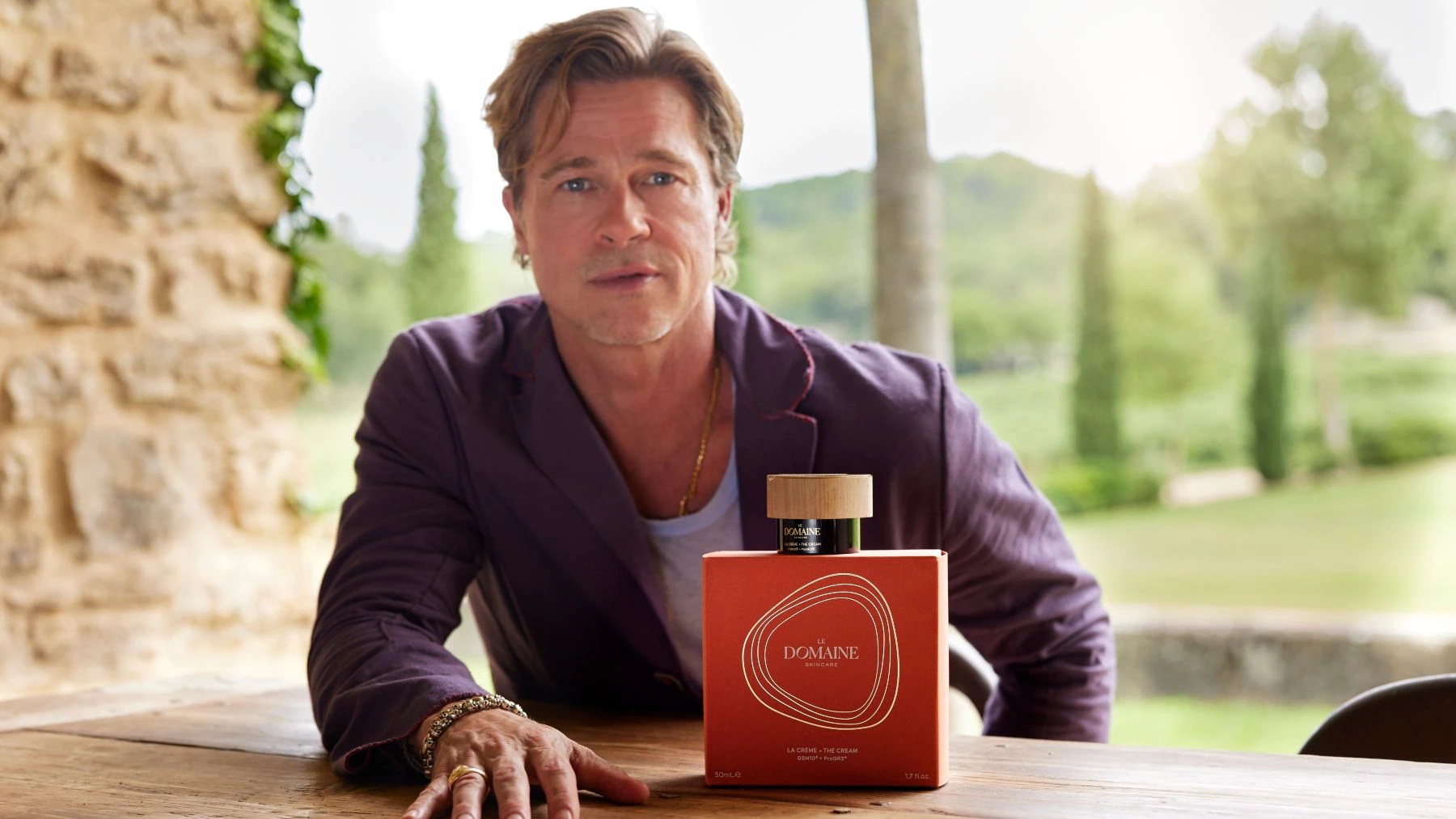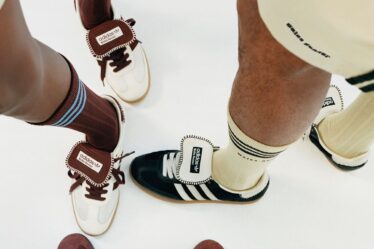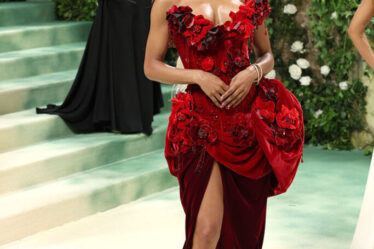
The origin story of every celebrity beauty brand seems to begin on a yacht, at a private dinner or with a winery.
It was the latter for Brad Pitt, who unveiled Le Domaine, his genderless skin care brand last week. I spoke to Pitt’s business partner, Marc Perrin, about how optimising the soil of an A-list celebrity vineyard led to a luxury skin care brand.
The two met a decade ago, Perrin tells me, when Brad needed help with Château Miraval, which he bought with ex-wife Angelina Jolie. Perrin and his family, the vintners who have owned Château de Beaucastel since 1909, built Pitt a new cellar, analysed his soil to identify the best plots for new vineyards. The Perrins were also conducting a different sort of research of their own – grapes are known for their antioxidant properties – and about three years ago, Perrin and Pitt decided to start a beauty business.
“I told him [Pitt], ‘We have done all this research and had a fantastic compound that could let us create a very unique skin care brand,’” Perrin said. “It was a conversation we had, and we decided to launch it together. We really do not see ourselves as a celebrity brand. I like to say that Miraval isn’t a celebrity wine, it’s a brand which belongs to a celebrity. Here it’s the same.”
The compound had better be fantastic considering the prices they’re charging. A serum costs $385, a cream $320, a cleanser $80 and a fluid cream, which launches in January, will cost $310 (a comparable amount of Augustinus Bader’s “The Rich Cream,” today’s platinum standard for ultra-luxe skin care, costs $280). Products ship worldwide starting Oct. 1 and Perrin said Le Domaine’s first retail partner will start selling the brand online “in the next few weeks” (a physical retail rollout is planned by the end of the year).
In an interview with Vogue last week, Pitt said he was inspired by Gwyneth Paltrow’s Goop, the template for modern celebrity beauty brands. But while Paltrow had the market virtually to herself a decade ago, today even a star at Pitt’s level of fame has to find a way to stand out from the dozens of other celebrity brands that have come out the past two years.
Perrin doesn’t seem too concerned about the stiff competition, finding product-market fit, customer acquisition costs and other beauty start-up concerns. Speaking a day after the brand’s launch, he said he hadn’t yet checked how the first day of sales went.
“I am very new in that world, and we’ll see where we go. We didn’t do a marketing plan yet or really a business plan. We really worked on our product and our idea of the company, the values,” Perrin explained. “I really don’t know where we will go. It’s a project that is growing as we grow it basically.”
Though he’s indisputably been one of Hollywood’s biggest heartthrobs for the past 30 years, Pitt is not known for having great skin, rarely discusses his beauty routine and doesn’t even have an Instagram account — all of which could be barriers to success in skin care. Is Pitt so famous that the rules just don’t apply?
I asked my friends, Instagram followers and a few industry types, including Emilio Quezada, a men’s skin care expert and half of the duo behind Dewy Dudes, an Instagram account and podcast that cornered a niche with memes about buying tretinoin from Mexican pharmacies and Adam Levine’s stint as a Proactiv ambassador.
“The whole thing is kind of like a wink, like they know it’s not going to sell,” said Quezada.
What about Travis Barker’s Barker’s skin care line, Barker Wellness, which launched one day before Le Domaine? His moisturiser costs a mere $85, practically a bargain compared to Pitt’s brand.
“I will definitely not buy either of these brands and I do not know any men in my life that would buy those brands,” Quezada said.
Dulma Atlan, TikTok creator, consultant and founder of the business podcast Due Diligence, said that putting Pitt at the centre of the brand may have been a mistake. While it guarantees a massive publicity bump at launch, it also lumps Le Domaine in with all the other celebrity beauty brands, rather than with luxury lines that tend to rely more on their effectiveness to sell $300 bottles of serum.
“They would have been better off just calling out Brad as an investor and maybe doing a campaign with him as talent and not saying he’s one of the cofounders,” Atlan said.
That’s a shame, because the story and science behind Le Domaine comes off as legitimate – 15 years of research, renowned professors and the development of two exclusive compounds. Take out the Pitt factor, and Le Domaine could have stood on its own as a new player in luxury skin care and even given Augustinus Bader a run for its money.
“They could have found their appropriate target audience, but now people are not going to take them seriously,” Atlan said.
In the beauty business, celebrity founders are a blessing and a curse.



